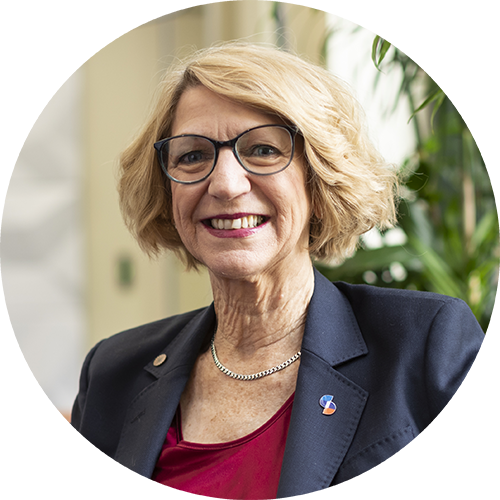The first piece in our new series Towards equity 2030: Thought leadership by Professor Eileen Baldry, Deputy Vice-Chancellor (Equity Diversity and Inclusion) UNSW Sydney
Progress towards equity for women in leadership has been painfully slow and, in fact, has gone backwards.
About the TWLP
Transforming Women’s Leadership Pathways (TWLP) is a unique and ambitious program, initiated by the PLuS Alliance – an international university alliance of Arizona State University, King’s College London, and UNSW Sydney –to achieve gender equity in leadership across society by 2030. It presents solutions via practical recommendations to women’s leadership barriers and pathways for change. The program brings together passionate individuals and organisations dedicated to achieving this for all women.TWLP has developed 10 sector specific action plans, with recommended strides for universities, industry and government to undertake to progress this aim. It is committed to applying innovative and research-driven solutions and advocates knowledge sharing and a collaborative, open, inclusive and collegial approach to partnering with similarly committed communities across the globe.
Why do we need TWLP and why now?
Progress towards equity for women in leadership has been painfully slow and, in fact, has gone backwards. The time it will take for leadership and other gender gaps to close grew by 36 years in the space of just 12 months, according to the World Economic Forum’s 2021 Global Gender Gap Report. The report estimates that it will take an average of 135.6 years for women and men to reach parity on a range of factors worldwide, instead of the 99.5 years outlined in the 2020 report. This is the largest reversal in one year since the report started in 20061.
There is no question now, after years of rigorous research and evaluation, that organisations led by diverse teams are more successful than non-diverse ones. While women make up half of the employees in Australia (50.5%), women comprise only:
- 32.5% of key management positions
- 28.1% of directors
- and 18.3% of CEOs2
Women currently hold 31 (6.2%) of CEO positions in Standard & Poor’s 500 companies3 in the USA. Similarly, in 2021, the number of women leading businesses in the Fortune 500 (Fortune Magazine’s largest 500 USA companies) hit an all-time record, at 41. But this is just 8.1% of those 500 companies and of these 41, only two are Women of Colour4. This latter fact highlights the even worse lack of representation of women from diverse backgrounds in leadership positions across all sectors and the urgent need to address intersectional factors.
Although parliaments are a little better, at the current rate of progress, global gender parity in national legislative bodies will not be achieved before 20635. And only 10 countries out of 195 in the world have a woman Head of State, and only 13 countries have a woman Head of Government.
TWLP is working to find solutions to these continuing disparities; our target is 2030, eight years from now. We have done a lot of work to establish this program and progress has been swift but there is much more to do and with our project groups and collaborators and superlative leadership, I know it can be done.
References
- 1. https://time.com/5951101/global-gender-gap-135-years/
- 2. https://www.wgea.gov.au/women-in-leadership#:~:text=While%20women%20make%20up,18.3%25%20of%20CEOs
- 3. https://www.catalyst.org/research/women-ceos-of-the-sp-500/
- 4. https://fortune.com/2021/06/02/female-ceos-fortune-500-2021-women-ceo-list-roz-brewer-walgreens-karen-lynch-cvs-thasunda-brown-duckett-tiaa/
- 5. https://www.unwomen.org/en/what-we-do/leadership-and-political-participation/facts-and-figures
- 6. https://www.unwomen.org/en/what-we-do/leadership-and-political-participation/facts-and-figures

Eileen Baldry AO FASSA FRSN is an Australian criminologist and social justice advocate. She is Deputy Vice-Chancellor Equity Diversity and Inclusion and Professor of Criminology at the University of New South Wales.
About Towards equity 2030: Thought leadership series
We will hear from women from around the world working in different roles, areas and sectors, on their experiences and their pathways to leadership; we will shed light on and learn from those experiences and ignite conversations and actions to propel us towards gender parity in leadership.
In this TWLP thought leadership series of blogs we address women’s leadership, barriers to achieving parity by 2030, evidence-based solutions, and actions for us all to take.
If you’d like to contribute, please contact Lily Halliday, Program Manager, lily.halliday@unsw.edu.au